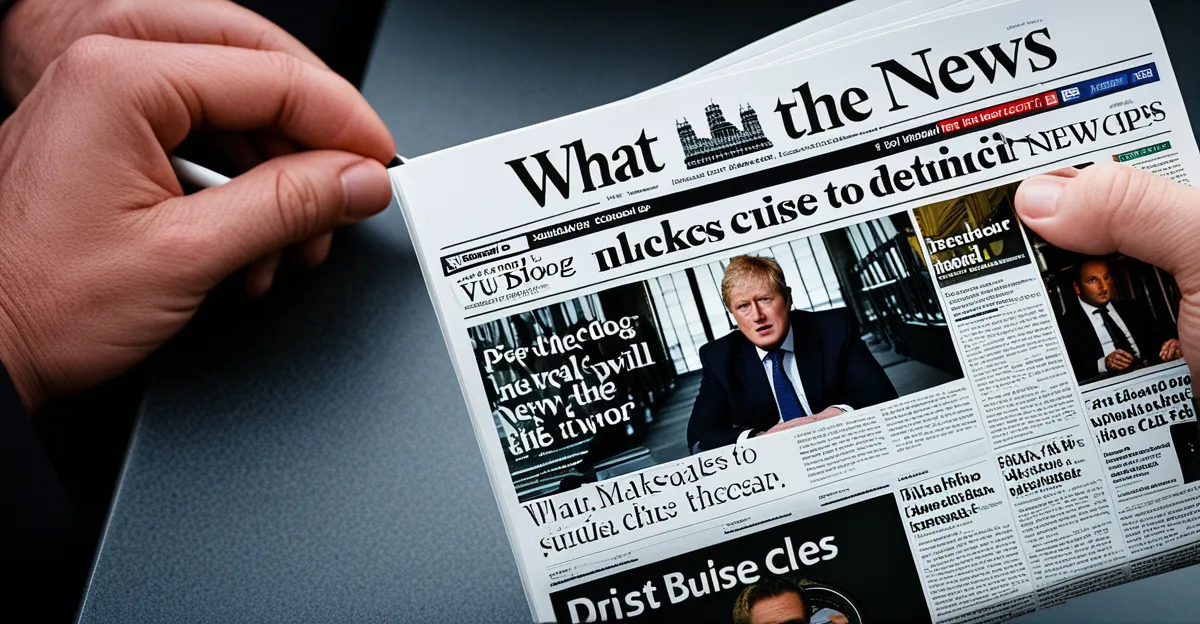Key Characteristics of the UK News Media Landscape
The UK news media features a unique blend of public service and commercial broadcasters, each playing distinct roles. Public service broadcasters like the BBC prioritize delivering impartial news to the entire population, whereas commercial outlets focus more on audience engagement and revenue generation. This balance shapes the diversity and reach of content available to UK audiences.
A notable distinguishing aspect is the presence of a broad spectrum of national and regional news outlets. Regional media ensures local stories remain accessible, complementing national coverage, which addresses wider political and social issues. This layered media culture supports nuanced public debate across multiple geographical levels.
This might interest you : What Challenges Lie Ahead for the UK in the Global Arena?
The UK’s rich media tradition also includes strong influences from both tabloid and broadsheet journalism. Tabloids often emphasize sensationalism and entertainment, targeting broader audiences, while broadsheets maintain a more formal, analysis-driven style. This contrast in tone and presentation marks a key media culture element, influencing how news is consumed and perceived throughout the country.
Regulatory Environment and Press Oversight
The press regulation UK framework centers on two key bodies: Ofcom and the Independent Press Standards Organisation (IPSO). Ofcom regulates broadcast media, ensuring compliance with standards, while IPSO oversees standards in print and online journalism, handling complaints and enforcing editorial codes. This dual system reflects the UK’s approach to maintaining a balance between press freedom and accountability.
Also to see : What role does investigative journalism play in UK media today?
Compared to many countries, the UK’s regulatory system is distinctive for its voluntary, self-regulatory approach via IPSO, unlike compulsory state control seen elsewhere. Nonetheless, legal frameworks also underpin regulation, including libel laws and data protection statutes, providing a legal basis for press oversight.
The Leveson Inquiry followed significant public concern over unethical journalistic practices. It recommended stronger measures for press accountability, sparking ongoing debates about the best ways to regulate without undermining free speech. This inquiry highlighted tensions between public interest, press freedom, and ethical journalism, which continue to shape regulatory reforms in the UK media landscape.
The BBC and Public Service Broadcasting
The BBC news model exemplifies public service broadcasting by prioritizing impartiality and comprehensive coverage. Its foundational principle ensures that news content serves the entire UK population without bias. This commitment to impartiality in UK media fosters public trust and sets high journalistic standards, influencing the broader media culture.
Significantly, the BBC is funded through a license fee paid by UK households. This funding mechanism grants the BBC independence from commercial and political pressures, distinguishing it from many commercial broadcasters. It ensures the broadcaster can focus on quality news rather than revenue generation, reinforcing its role as a trusted institution.
The BBC’s emphasis on impartiality is embedded in its editorial policies. These policies require balanced reporting across political and social issues, reflecting diverse viewpoints. This rigorous approach helps maintain accountability and credibility, supporting the public’s expectation for fair and objective information.
By setting this example, the BBC influences the wider UK news media features landscape, encouraging other outlets to uphold standards of impartiality and public service in their reporting.
Tabloids vs. Broadsheets: Cultural and Editorial Differences
The tabloid culture UK stands out for its focus on sensational headlines, celebrity gossip, and simplified stories that appeal to a broad audience. Tabloids often prioritize emotional impact over detailed analysis, making them highly accessible but sometimes criticized for less rigorous journalism. In contrast, broadsheet journalism is known for its in-depth reporting, complex analysis, and formal tone, targeting readers seeking comprehensive coverage of political, economic, and social issues.
Historically, these styles emerged to serve different audiences and societal roles. Tabloids grew out of a tradition of mass-market newspapers, aiming to capture popular interest, while broadsheets have roots in delivering authoritative news and fostering public debate. This division shapes the news styles found across UK media outlets, influencing how stories are framed and interpreted.
These editorial differences affect public discourse by offering varied perspectives and levels of media literacy. While tabloids can drive engagement and wider readership, broadsheets often encourage critical thinking and informed discussions. Both play key roles within the UK’s diverse media culture, reflecting the spectrum of audience needs and preferences.
Impartiality and Objectivity in UK Journalism
Impartiality in UK media is a core journalistic standard, requiring balanced and fair reporting across diverse topics. Editorial policies mandate that journalists avoid bias, ensuring that multiple viewpoints are represented. This approach reinforces public trust and upholds the journalistic standards essential to credible news.
Mechanisms for accountability include editorial codes enforced by regulators like IPSO, which review complaints and assess compliance with impartiality rules. These codes require factual accuracy and fairness, particularly in politically sensitive coverage. Transparency in editorial decisions further supports adherence to these standards.
How do the public perceive impartiality? Surveys often find mixed views, with some audiences perceiving bias from certain outlets. However, the formal commitment to impartiality across UK news media features helps maintain a broad trust base. This trust is vital for the media’s democratic role, enabling informed citizenry.
Overall, impartiality is not just an ideal but a practiced discipline supported by enforceable policies and oversight. It distinguishes UK journalism internationally and continues to evolve with changing media consumption habits, reinforcing the media culture’s integrity.

